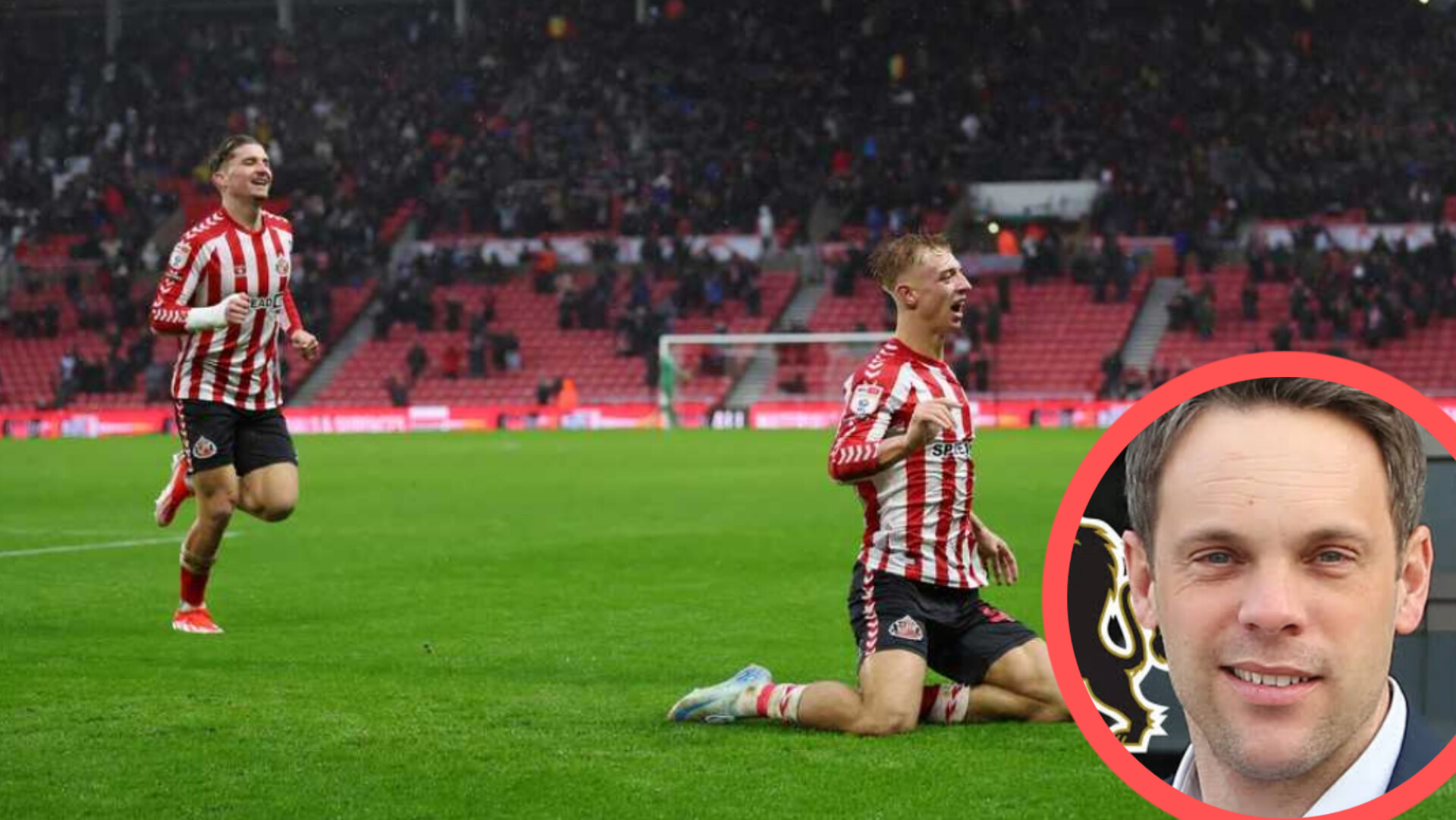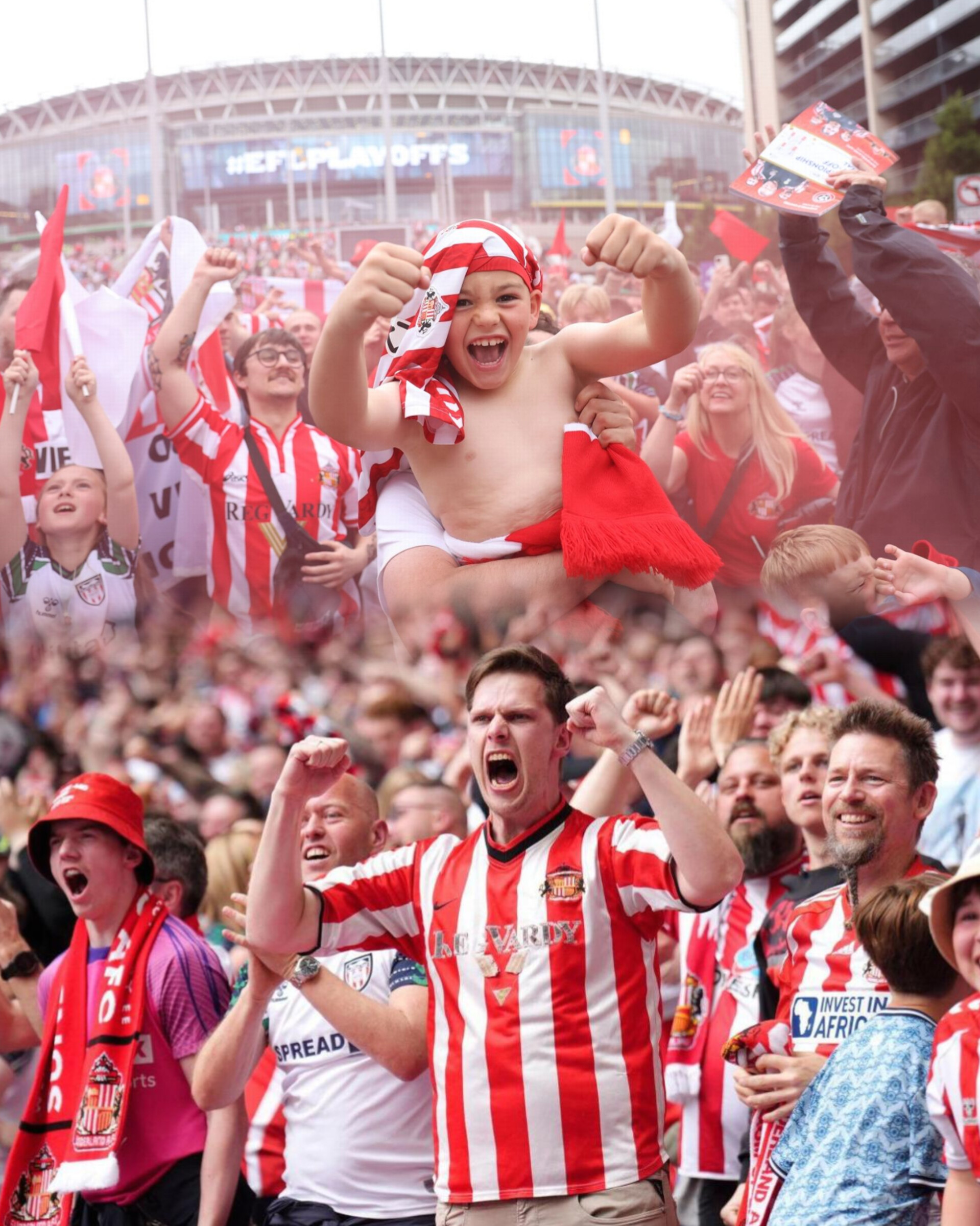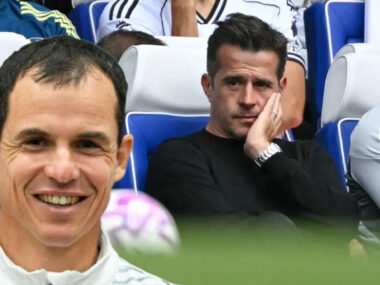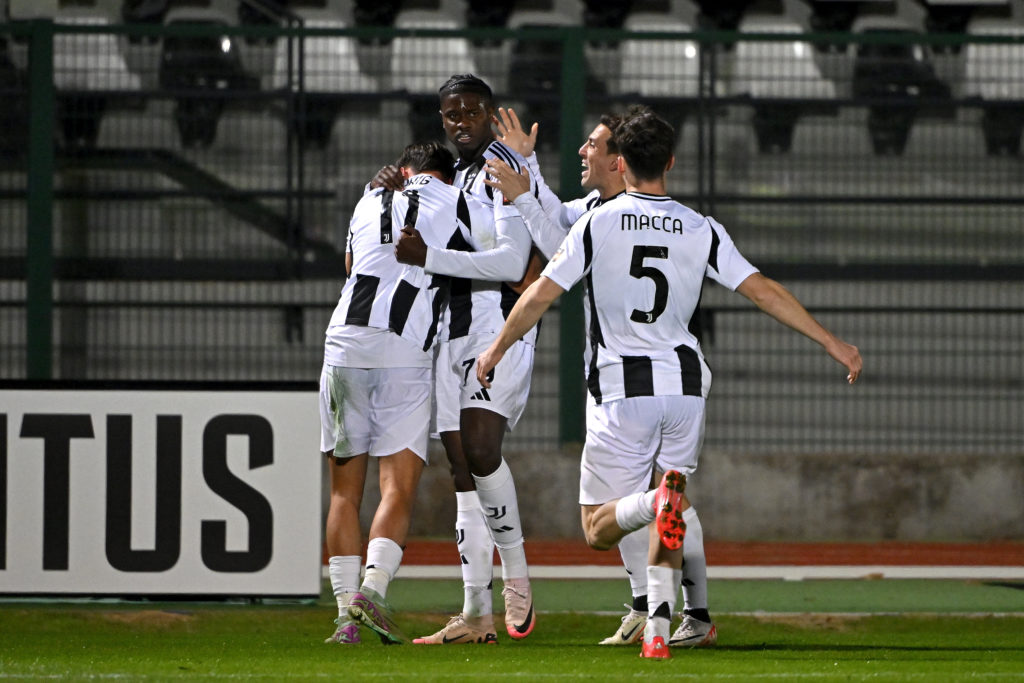Sunderland’s remarkable victory against Swansea City transcended mere sporting achievement, embodying a narrative of resilience, passion, and profound emotional connection between a team and its supporters.
The match, a rollercoaster of dramatic twists, saw the Black Cats orchestrate an extraordinary comeback from a seemingly insurmountable two-goal deficit, ultimately securing a victory that will be etched in the club’s contemporary folklore.
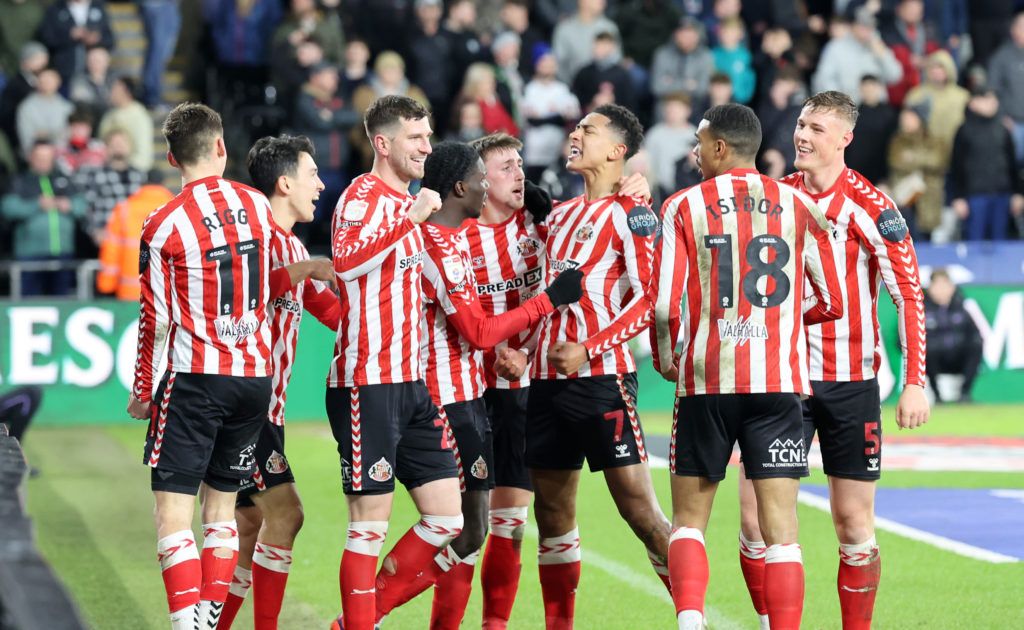
At the heart of this compelling story stands Jobe Bellingham, a 19-year-old midfielder whose performance and subsequent commentary illuminated the deep, symbiotic relationship between player and fan.
His winning goal was not just a tactical triumph but a moment of collective euphoria that symbolized the team’s growing character and competitive spirit.
Bellingham’s post-match reflections radiated genuine admiration for the Sunderland supporters.
His effusive praise emphasized the extraordinary nature of the away support, describing it as “second to none” and expressing a profound emotional connection that transcends typical player-fan dynamics.
The passionate celebration following his winning goal served as a visceral manifestation of this mutual appreciation.
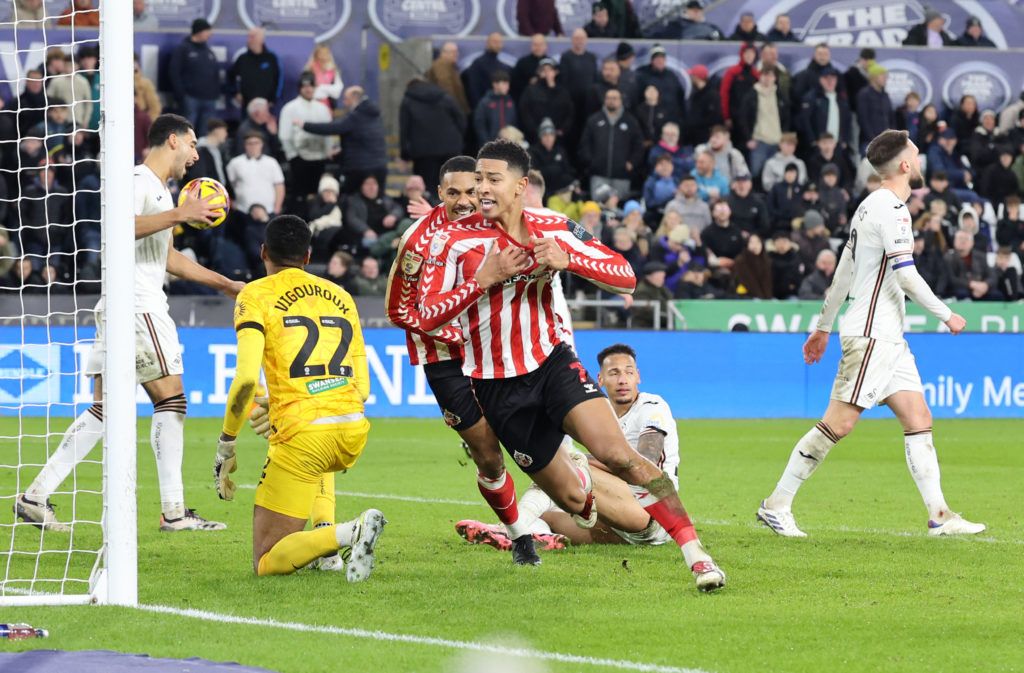
The young midfielder’s comments carry additional significance in the context of persistent transfer speculation.
Despite rumored interest from prestigious European clubs like Real Madrid and Borussia Dortmund, Bellingham’s statements suggest a deep emotional investment in his current environment.
His explicit declaration of love for the fans and the unique connection he feels at Sunderland potentially challenges prevailing transfer narratives.
The match against Swansea represented more than a singular sporting moment.
It demonstrated Sunderland’s evolving identity under manager Regis Le Bris – a team characterized by mental fortitude, tactical adaptability, and an ability to overcome adversity.
Goals from Dan Ballard, Dan Neil, and Bellingham himself illustrated a collective resilience that suggests significant potential for future success.

Bellingham’s trajectory appears particularly intriguing.
While acknowledging the inevitable progression of talented young players towards elite competitive environments, his current statements suggest a genuine contentment and commitment to Sunderland’s project.
The mutual appreciation between player and supporters creates a compelling narrative of potential long-term collaboration.
The victory and Bellingham’s subsequent commentary also highlight broader themes within modern football – the importance of emotional connections, the role of passionate support in player motivation, and the potential for smaller clubs to retain emerging talents by creating meaningful, supportive environments.

For Sunderland fans, this moment represents more than a dramatic comeback.
It symbolizes hope, potential, and the possibility that their promising young midfielder might represent a cornerstone of the club’s future rather than a transient talent destined for immediate departure.
As the football landscape continues to evolve, Jobe Bellingham’s current trajectory suggests a nuanced approach to career development – one that values emotional connection, developmental opportunity, and collective achievement over immediate, high-profile transfers.

